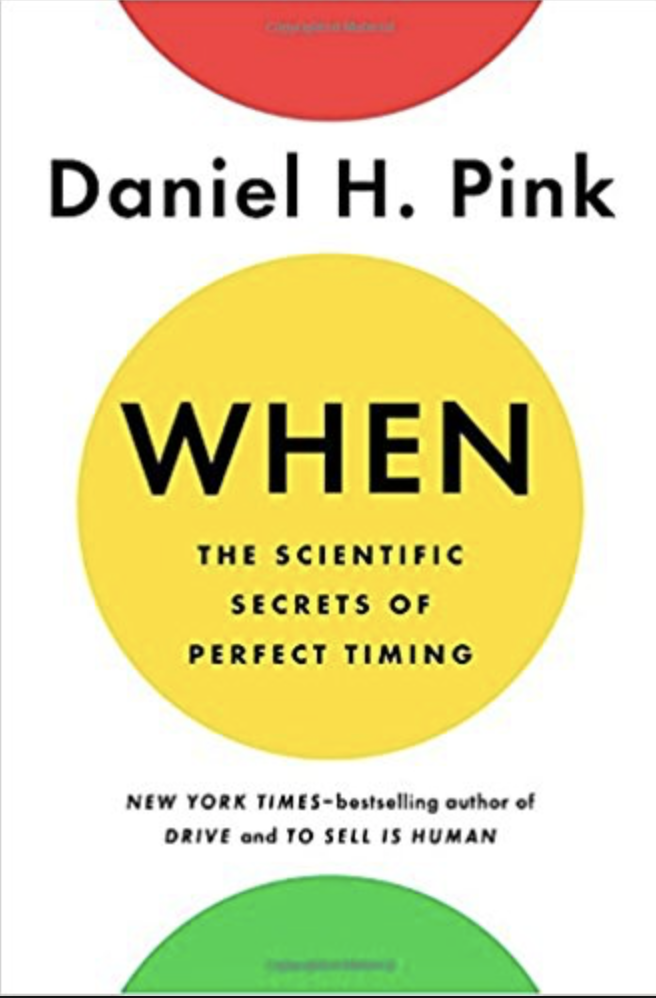WHAT I LEARNED FROM WHEN: THE SCIENTIFIC SECRETS OF PERFECT TIMING
Daniel Pink's new book, When: The Scientific Secrets of Perfect Timing, is one of the best non-fiction books I've read in a while. It is filled with research, anecdotes, and strategies that will help you be more productive. I shared some of his insights a few weeks ago and thought I would use today's blog to list my top takeaways from the book.
TOP 10 TAKEAWAYS
Positive mood rises in the morning, dips in the afternoon, and rises again in the evening. This is true across continents, time zones, and cultures.
As the day wears on, we are more likely to fall back on stereotypes and make unconsciously biased decisions.
The "inspiration paradox" reveals that innovation and creativity are greatest when we are not at our best (when we are fatigued and have less focus). Students do better on analytic subjects, like math, in the morning and subjects like art and creative writing later in the day.
It is important to pay attention to your chronotype (a distinct pattern of circadian rhythms that impacts both your physiology and psychology). Click this link for information on chronotype from my recent blog post.
Drink coffee 60-90 minutes after waking for maximum impact (your body naturally produces cortisol when you first wake so the caffeine boost is better if you wait a little).
An estimated 62% of Americans eat lunch at their desk (known as "the sad desk lunch"). Those who take breaks away from their desks are better able to handle workplace stress and also show less exhaustion.
Afternoon naps expand the brain's capacity. In research studies, nappers outperform non-nappers in retaining information.
A "nappuccino" combines coffee and napping for maximum rejuvenation. The ideal nap is 10-20 minutes long and it takes about 25 minutes for caffeine to enter the bloodstream. If you need a major afternoon pick-me-up, consider drinking a cup of coffee right before taking a power nap. You will wake up refreshed and ready to go!
Other than New Year's, there are many opportunities to start a new, good behavior. Birthdays, Mondays, holidays, and the first of each month are all opportunities for a "fresh start."
Given a choice, most people prefer bad news first. Yet, when we are delivering the news, we do the reverse. In a performance review, starting with the positives makes the receiver feel that the praise is artificial since they are simply anticipating the negatives. Better to provide constructive feedback first, followed by praise.
These are only a handful of the many useful insights in Pink's recent release. If you're interested in reading the book yourself, here's a link.
WANT MORE PRODUCTIVITY TIPS?
Check out Super-Productive: 120 Strategies to Do More and Stress Less.
Available on Amazon.
To learn more, visit ControlChaos.org


